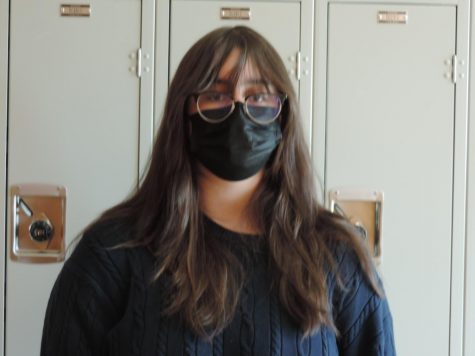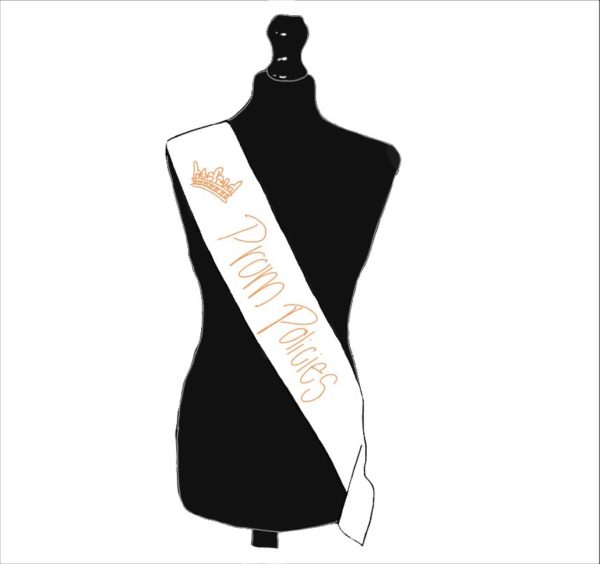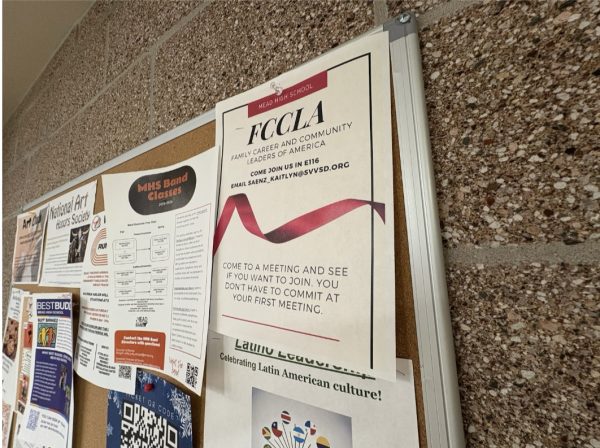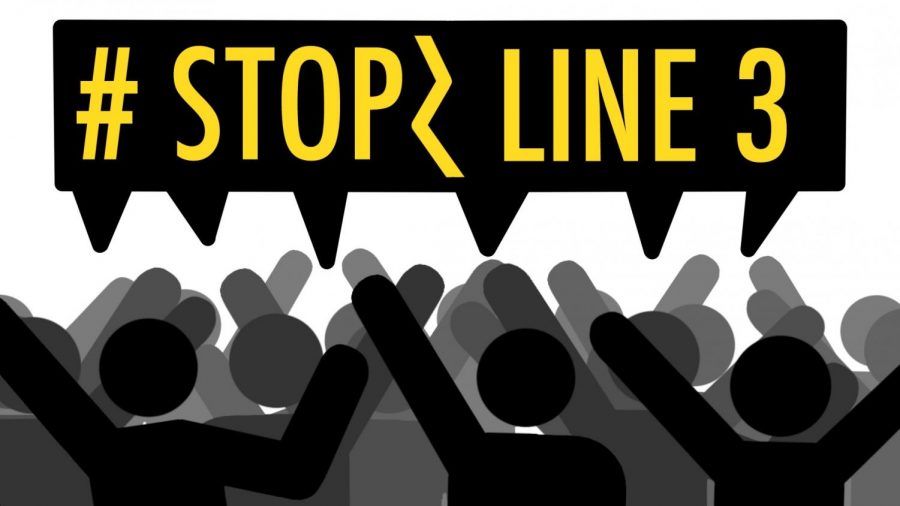Line 3 oil pipeline spill would cause extreme environmental damage
The #StopLine3 online tag has grown in popularity as people all around the U.S. have recognized the impact a Line 3 oil spill would have
In order to campaign against Line 3, some avid environmentalists and water protection activists have been protesting.
Line 3 is a pipeline that will bring 760,000 barrels of crude oil from Alberta, Canada to Superior, Wisconsin. Proposed in 2014 by the Canadian pipeline company, Enbridge, Line 3 goes “through untouched wetlands and the treaty territory of Anishinaabe peoples, through the Mississippi River headwaters to the shore of Lake Superior” , as explained by the official Stop Line 3 site.
Enbridge was recently fined by the Minnesota Department of Natural Resources over three million dollars for “digging deeper in some areas than their permits allowed, [releasing] millions of gallons of groundwater while the state [struggles] with a drought,” as reported by MPR News back in August.
Enbridge is the company at fault for the largest inland oil spill in U.S. history.
As said by MPR News, “March 3, 1991, the Line 3 oil pipeline ruptured in Grand Rapids, Minn., spilling 1.7 million gallons of crude oil onto the frozen Prairie River.” Thanks to the sheet of ice covering Prairie River the crude oil did not spill into the Mississippi River. However, this is still involved in the fight to stop Line 3 due to its unarguable significance.
“The Mississippi River is one of the world’s major river systems in size, habitat diversity[,] and biological productivity. It is also one of the world’s most important commercial waterways and one of North America’s great migration routes for both birds and fishes,” said the National Park Service site. If the Mississippi River were to become deluged by thousands of crude oil, our environment would suffer greatly.
The crude oil industry has been dying out the past few years, and Line 3 is a way to try to revive this industry. Crude oil is considered one of the dirtiest oils and directly contributes to an increase in CO2 emissions.
Anishinaabe peoples’ rights and land are at risk as well. Anishinaabe people have signed multiple treaties with the U.S. government spanning from 1825 all the way to 1867. Line 3 violates these treaties by crossing numerous watersheds. Rice is a very important part of Anishinaabe culture and watersheds are where they grow their rice.
“The construction alone, they claim, has already had an impact. A spill would be devastating,” said ABC news broadcasting.
Line 3 began “decommissioning in Canada in June 2021 in Manitoba; the subsequent segments will be completed in 2022”, according to the Enbridge site’s breakdown on the Line 3 Program.
Decommissioning a pipeline means it’s not active, but stays in the area it was placed. According to the same official Enbridge site, it “typically involves… removing the oil from the pipeline; cleaning the pipeline; physically disconnecting the pipeline; segmenting the pipeline and continuing to monitor it”.
“We are running out of time, which is why we’re asking the president to intervene. This is the last hope that the water protectors have in stopping this pipeline,” said Minneapolis Representative Ilhan Omar in an interview with ABC news.
If you’re looking to take action to stop Line 3, suggestions are listed on stopline3.org.
Your donation will support the student journalists of Mead High School. Your contribution will allow us to purchase equipment and cover our annual website hosting costs.

Petra Jensen is a Junior at Mead high school. They enjoy drawing, gaming, and hanging out with friends. They are involved in journalism and book club. They are looking forward to graduating high school in the future.







Shea Doherty • Feb 8, 2022 at 10:53 am
interesting